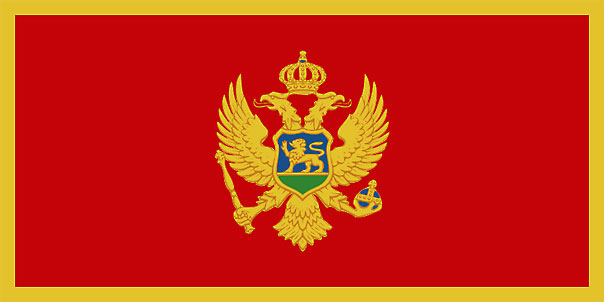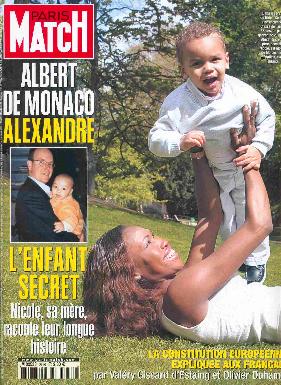Cour. eur. D.H. 10 novembre 2015, IEFbe 1572; requête no 25239/13 (M'Bala M'Bala contre France)
 Nederlands zie hieronder. Communiqué de presse: L’affaire , concerne la condamnation de Dieudonné M’Bala M’Bala, humoriste engagé en politique, pour injure publique envers une personne ou un groupe de personnes en raison de leur origine ou de leur appartenance à une ethnie, une nation, une race ou une religion déterminée, en l’espèce les personnes d’origine ou de confession juive.
Nederlands zie hieronder. Communiqué de presse: L’affaire , concerne la condamnation de Dieudonné M’Bala M’Bala, humoriste engagé en politique, pour injure publique envers une personne ou un groupe de personnes en raison de leur origine ou de leur appartenance à une ethnie, une nation, une race ou une religion déterminée, en l’espèce les personnes d’origine ou de confession juive.
À la fin d’un spectacle donné dans la salle du « Zénith » de Paris le 26 décembre 2008, Dieudonné M’Bala M’Bala avait invité Robert Faurisson, un universitaire condamné en France à plusieurs reprises en raison de ses thèses négationnistes et révisionnistes consistant à nier l’existence des chambres à gaz dans les camps de concentration, à le rejoindre sur scène pour recevoir les applaudissements du public et se faire remettre le « prix de l’infréquentabilité et de l’insolence ». Ce prix, symbolisé par un chandelier à trois branches coiffées de trois pommes, lui avait été remis par un figurant vêtu d’un pyjama rayé sur lequel avait été cousue avec une étoile jaune portant la mention « juif », qualifié d’« habit de lumière », le représentant ainsi en déporté juif des camps de concentration.
La Cour juge qu’en l’espèce, au cours du passage litigieux, la soirée avait perdu son caractère de spectacle de divertissement pour devenir un meeting qui, sous couvert de représentation humoristique, valorisait le négationnisme par le biais de la place centrale donnée à l’intervention de Robert Faurisson et dans la mise en position avilissante des victimes juives des déportations face à celui qui nie leur extermination. Aux yeux de la Cour, il ne s’agissait pas d’un spectacle qui, même satirique ou provocateur, relèverait de la protection de l’article 10 (liberté d’expression) de la Convention européenne des droits de l’homme, mais en réalité, dans les circonstances de l’espèce, d’une démonstration de haine et d’antisémitisme, ainsi que d’une remise en cause de l’holocauste. Travestie sous l’apparence d’une production artistique, elle est aussi dangereuse qu’une attaque frontale et abrupte, tout en représentant l’expression d’une idéologie qui va à l’encontre des valeurs de la Convention.
Partant, la Cour considère ainsi qu’en l’espèce Dieudonné M’Bala M’Bala tente de détourner l’article 10 de sa vocation en utilisant son droit à la liberté d’expression à des fins contraires au texte et à l’esprit de la Convention et qui, si elles étaient admises, contribueraient à la destruction des droits et libertés garantis par la Convention.
EVRM beschermt niet negationistische en antisemitische optredens
EHRM 10 november 2015, IEFbe 1572; requête no 25239/13 (M'Bala M'Bala tegen Frankrijk)
 Uit het Engelstalige persbericht: Dieudonné M'Bala M'Bala, een komiek met politieke activiteiten, heeft in het openbaar beledigingen geuit aan het adres van mensen met een Joodse afkomst of het Joodse geloof.
Uit het Engelstalige persbericht: Dieudonné M'Bala M'Bala, een komiek met politieke activiteiten, heeft in het openbaar beledigingen geuit aan het adres van mensen met een Joodse afkomst of het Joodse geloof.
Aan het eind van een show in 2008 in Zénith, Parijs is Robert Faurisson, een academicus met meerdere veroordelingen vanwege negationistische meningen, met name voor het ontkennen van gaskamers in concentratiekampen, uitgenodigd om samen met hem een "prize for unfrequentibility and insolence" in ontvangst te nemen. De prijs, in de vorm van een drie-vertakte kandelaarmet een appel op iedere tak, werd aan hem uitgereikt door een acteur gekleed in "garment of light" - een gestreepte pyjama met een gele Jodenster erop genaaid.
Het Hof ziet de scène niet als een entertainment optreden, maar als een politieke meeting onder het mom van comedie, dat negationisme promoot door Robert Faurisson een sleutelrol te geven en de vernederende portrettering van Joodse deportatieslachtoffers die worden geconfronteerd met een man die de uitroeiing weigert te erkennen.
Het optreden, zelfs als het satirisch of provocend bedoeld, valt niet onder de vrijheid van meningsuiting van artikel 10 EVRM. In werkelijk was hier sprake van een demonstratie van haat en anti-semitisme en ontkenning van de Holocaust. Vermomd als een artistieke productie was dit in feite een plotselinge aanval die tegen de letter en de geest van het Europese Verdrag indruist.
 Uit het persbericht: Mediarecht. In 2008 heeft de Turkse rechter geoordeeld dat de website YouTube in zijn geheel geblokkeerd moest worden, vanwege een video die Atatürk zou beledigen. Cengiz, Akdeniz en Altparmak doceren rechten aan verschillende Turkse universiteiten en hebben gezamenlijk bezwaar gemaakt tegen deze blokkade. Dit bezwaar werd door de nationale rechters afgewezen.
Uit het persbericht: Mediarecht. In 2008 heeft de Turkse rechter geoordeeld dat de website YouTube in zijn geheel geblokkeerd moest worden, vanwege een video die Atatürk zou beledigen. Cengiz, Akdeniz en Altparmak doceren rechten aan verschillende Turkse universiteiten en hebben gezamenlijk bezwaar gemaakt tegen deze blokkade. Dit bezwaar werd door de nationale rechters afgewezen. Mediarecht. Just satisfaction. Koprivica was voormalig hoofdredacteur van weekmagazine Liberal. De zaak gaat over lasterprocedures die tegen hem worden opgevoerd vanwege het schrijven over een rechtszaak tegen 16 journalisten die voor het Joegoslavië-tribunaal worden geleid. Koprivica moet € 5.000 betalen aan schadevergoeding. Een schadevergoeding van 25x zijn pensioen is excessief en levert schending van artikel 10 EVRM op. Op basis van artikel 41 (just satisfaction) wordt dat verlaagd tot € 1.133,31.
Mediarecht. Just satisfaction. Koprivica was voormalig hoofdredacteur van weekmagazine Liberal. De zaak gaat over lasterprocedures die tegen hem worden opgevoerd vanwege het schrijven over een rechtszaak tegen 16 journalisten die voor het Joegoslavië-tribunaal worden geleid. Koprivica moet € 5.000 betalen aan schadevergoeding. Een schadevergoeding van 25x zijn pensioen is excessief en levert schending van artikel 10 EVRM op. Op basis van artikel 41 (just satisfaction) wordt dat verlaagd tot € 1.133,31. Persbericht:
Persbericht: Nederlands zie hieronder.
Nederlands zie hieronder.  Nederlands zie hieronder.
Nederlands zie hieronder.  Mediarecht. Geen inbreuk op art. 10 EVRM. De zaak ging over de aanhouding van een media-fotograaf tijdens een demonstratie en zijn veroordeling voor ongehoorzaamheid aan de politie. De Kamer constateerde dat de Finse autoriteiten hun beslissingen op relevante en voldoende redenen had gebaseerd en dat zij een billijk evenwicht had gezocht tussen de concurrerende belangen. Het was de media niet opzettelijk moeilijk gemaakt. Mr. Pentikäinen was niet verhinderd zijn werk te doen als journalist tijdens of na de demonstratie. In het bijzonder was hij niet aangehouden voor zijn werk als journalist als zodanig, maar voor de weigering om bevelen van de politie op te volgen de plaats van de demonstatie te verlaten. Zijn apparatuur was niet in beslag genomen, en hij is niet bestraft.
Mediarecht. Geen inbreuk op art. 10 EVRM. De zaak ging over de aanhouding van een media-fotograaf tijdens een demonstratie en zijn veroordeling voor ongehoorzaamheid aan de politie. De Kamer constateerde dat de Finse autoriteiten hun beslissingen op relevante en voldoende redenen had gebaseerd en dat zij een billijk evenwicht had gezocht tussen de concurrerende belangen. Het was de media niet opzettelijk moeilijk gemaakt. Mr. Pentikäinen was niet verhinderd zijn werk te doen als journalist tijdens of na de demonstratie. In het bijzonder was hij niet aangehouden voor zijn werk als journalist als zodanig, maar voor de weigering om bevelen van de politie op te volgen de plaats van de demonstatie te verlaten. Zijn apparatuur was niet in beslag genomen, en hij is niet bestraft.  Mediarecht. Op een subdomein van de elektronische krant Tiroler Tageszeitung Online worden korte filmpjes aangeboden. Het aanbod van korte video’s op de website van een krant kan onder de regeling voor audiovisuele mediadiensten vallen. Dat is het geval indien dit aanbod een autonome inhoud en functie heeft ten opzichte van de journalistieke activiteit van de internetkrant. Het Hof verklaart voor recht:
Mediarecht. Op een subdomein van de elektronische krant Tiroler Tageszeitung Online worden korte filmpjes aangeboden. Het aanbod van korte video’s op de website van een krant kan onder de regeling voor audiovisuele mediadiensten vallen. Dat is het geval indien dit aanbod een autonome inhoud en functie heeft ten opzichte van de journalistieke activiteit van de internetkrant. Het Hof verklaart voor recht: Onrechtmatige publicatie. Mediarecht. Privacy. In een
Onrechtmatige publicatie. Mediarecht. Privacy. In een  Vrijheid van meningsuiting. De zaak betrof een artikel van de aanvragers over de gevangen leden van het KADEK. Zij hebben kritiek op de omstandigheden in de gevangenis van Abdullah Öcalan, de leider van een terroristische organisatie. Dit wilde zij publiceren in een dagblad. Het Hof constateerde dat de tekst als geheel niet oproept tot geweld, gewapend verzet of opstand. Het riep ook niet op tot haatzaaiing, dat de meest zwaarwegende factor is. Derhalve, schending van art. 10 EVRM: vrijheid van meningsuiting.
Vrijheid van meningsuiting. De zaak betrof een artikel van de aanvragers over de gevangen leden van het KADEK. Zij hebben kritiek op de omstandigheden in de gevangenis van Abdullah Öcalan, de leider van een terroristische organisatie. Dit wilde zij publiceren in een dagblad. Het Hof constateerde dat de tekst als geheel niet oproept tot geweld, gewapend verzet of opstand. Het riep ook niet op tot haatzaaiing, dat de meest zwaarwegende factor is. Derhalve, schending van art. 10 EVRM: vrijheid van meningsuiting. Vrijheid van meningsuiting. Het gaat om een lokale leider van een politieke partij die werd veroordeeld voor illegale foto's en publicaties die werden gevonden in het kantoor van zijn partij. Meneer Duman vindt dit inmenging in zijn recht op vrijheid van meningsuiting. Het Hof merkte op dat, hoewel de heer Duman heeft ontkend enige kennis van het materiaal te hebben, dit toch een inmenging in zijn rechten is op grond van art. 10 EVRM. Het Hof constateert dat de redenen voor de veroordeling niet relevant genoeg zijn. In het bijzonder kan het gedrag van meneer Duman niet worden uitgelegd als steun aan onrechtmatig handelen. Er is geen aanwijzing dat het materiaal pleit voor geweld, gewapend bezit of een opstand. Oftewel, schending van art. 10 EVRM: vrijheid van meningsuiting.
Vrijheid van meningsuiting. Het gaat om een lokale leider van een politieke partij die werd veroordeeld voor illegale foto's en publicaties die werden gevonden in het kantoor van zijn partij. Meneer Duman vindt dit inmenging in zijn recht op vrijheid van meningsuiting. Het Hof merkte op dat, hoewel de heer Duman heeft ontkend enige kennis van het materiaal te hebben, dit toch een inmenging in zijn rechten is op grond van art. 10 EVRM. Het Hof constateert dat de redenen voor de veroordeling niet relevant genoeg zijn. In het bijzonder kan het gedrag van meneer Duman niet worden uitgelegd als steun aan onrechtmatig handelen. Er is geen aanwijzing dat het materiaal pleit voor geweld, gewapend bezit of een opstand. Oftewel, schending van art. 10 EVRM: vrijheid van meningsuiting. 




















